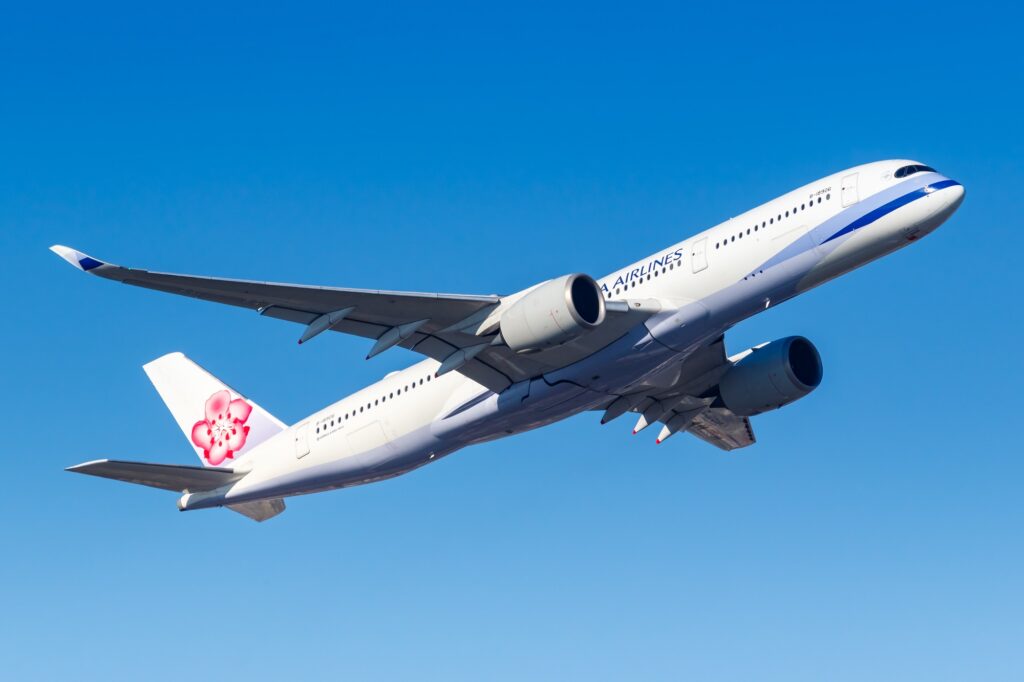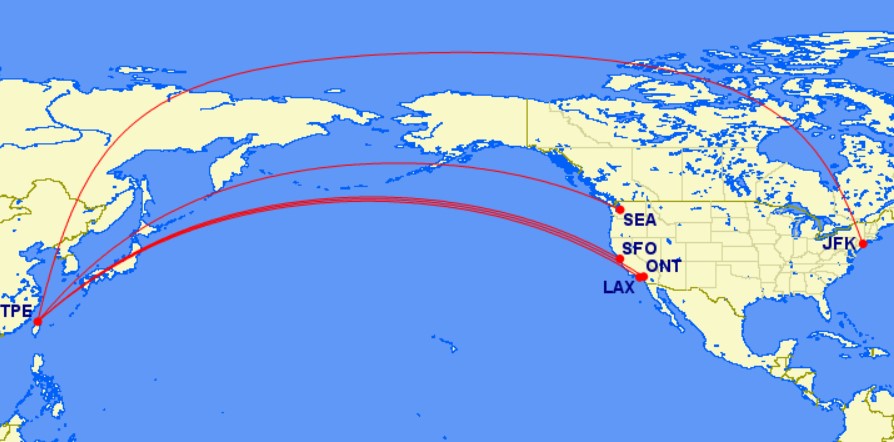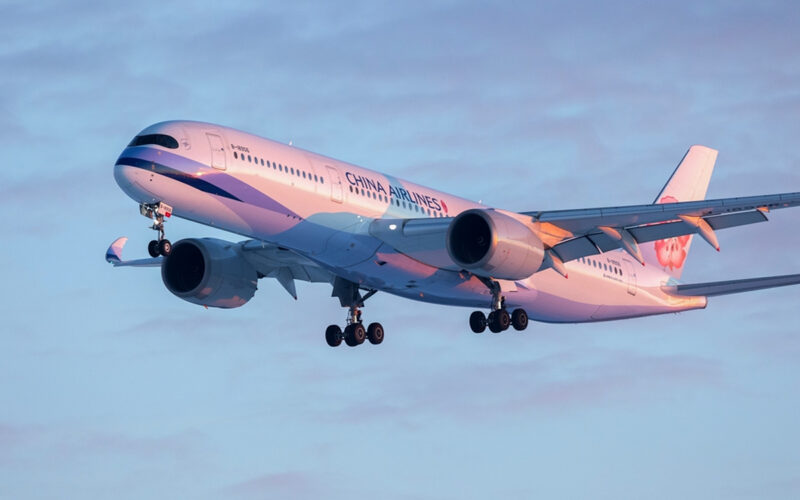A report published by Reuters on October 11, 2024, states that Taiwan-based China Airlines is looking to place an order for its next generation of widebodies, with both the Airbus A350 and Boeing 777X said to be in contention. The aircraft are needed to expand the carrier’s operations between Taiwan and the US mainland, as well as several high-density regional routes.
The order is likely to feature either the longer A350-1000 variant of the European twinjet or the yet-to-be-certified and heavily delayed Boeing 777X series. The carrier already operates fleets of 15 A350-900s and 10 777-300ERs, the latter of which have an average age of around nine years and are due to be replaced by the new airplanes whenever they enter service with the airline.
Any new additions to the fleet will come as the carrier aims to modernize the range of aircraft it operates to improve performance and maximize efficiency. The airline has already ordered 24 Boeing 787 Dreamliners (six 787-8, 18 787-9) and has a further Airbus A321NX on order to update its regional fleet which is predominantly made up of Boeing 737-800s with an average age of 9.1 years.

Ahead of any firm order being placed with either manufacturer, the company’s Chairman Hsieh Shih-chien told reporters that the carrier is not facing any pressure from the Taiwanese Government regarding which manufacturer to buy from. The US Government is Taiwan’s most important international financial supporter (and supplier of vital defense equipment).
Additionally, it is widely known that Nancy Pelosi, the former US House of Representatives Speaker, visited Taiwan in 2022, following which the carrier placed its 787 worth $4.6 billion to replace its current A330 fleet. The result of the upcoming election in the US is also thought to be part of the considerations, although will not affect the outcome, Hsieh said.
“When it comes to buying aircraft, it is only China Airlines ourselves who makes the assessment. I want to clarify this,” Hsieh added.
Multibillion-dollar deals involving Taiwanese companies, particularly for new commercial and military aircraft, often involve both political as well as business considerations. Taiwan, whose sovereignty is constantly disputed by China, relies heavily on support from Western countries as it fights to remain an independent nation, and involvement from state authorities is thought to play an important part when major international deals are being finalized.

It remains unclear how Boeing’s recent announcement that the certification process for the 777X is being delayed until 2026 will affect the decision-making process.
The new fleet is primarily to be used to strengthen air links operated by the airline between Taipei and US cities already served by China Airlines. These include New York-JFK (JFK) and San Franciso (SFO) which are both exclusively served by the carrier’s 777-300ERs, plus Los Angeles (LAX), Ontario (California-ONT), and Seattle (SEA) which are all served by either 777s or Airbus A350-900s.

